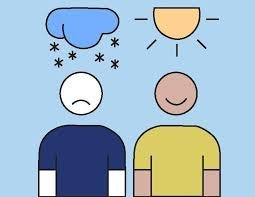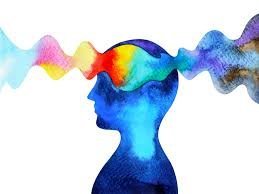
Blog
CBT for Health Anxiety
Health anxiety is anxiety about being seriously ill and may manifest as spending a lot of time looking up medical symptoms on the internet or thinking you have a serious illness, such as cancer, at the first sign of minor physical symptoms such as a scratchy throat or cough. CBT and ACT can help with health anxiety.
Embracing Vulnerability
Emotional vulnerability is the quality or feeling of being exposed to possible emotional attack or harm. Having to face potential criticism or rejection. It is not easy to take emotional risks and open ourselves up to the possibility of being hurt. And, embracing emotional vulnerability can lead to personal growth.
Prioritizing Rest
In our go-go-go world rest can seem like a bad word. Not accomplishing 20 tasks a day feels like we are doing something wrong. We are being lazy. It is common to equate success, or productivity, with non-stop activity. However, rest supports productivity, creativity, and contentment.
Obsessive Compulsive Disorder
Obsessive-compulsive disorder (OCD) is a common mental health disorder where a person experiences uninvited and unwanted recurring thoughts or images (“obsessions”) and behaviors (“compulsions”). Obsessive thoughts trigger distressing feelings and compulsions are behaviors an individual engages in repeatedly to decrease distress.
Losing a Parent
We all have different experiences and feelings about our parents. As we move through grief, which can mean years or a lifetime, we may experience depressed mood, poor sleep, irritability, or decreased concentration.
Doing What Is Meaningful for You Increases Quality of Life
Quality of life, or how satisfied a person feels about their life overall, can diminish when living with chronic pain or a chronic health condition. One reason why the quality of life diminishes when living with a chronic health condition is that we are no longer doing things that are important to us.
The Power of the Breath to Ease Pain
So, one helpful way to manage stress and chronic pain is to practice relaxing our muscles and nervous system via breathing exercises. These exercises may sound simple yet consistently practicing them can be easier said than done.
Anxiety at Night
We can’t sleep when we are anxious because anxiety is telling us a threat may be present, even when it is not, causing us to be alert and stay awake. And the worse we sleep, the more anxious we tend to feel leading to a vicious cycle. Worry Time is a great strategy to decrease nighttime anxiety and facilitate sleep.
Treating Anxiety in Therapy
Anxiety is a feeling of worry, nervousness, or unease. Often, we worry about situations that feel threatening and/or have uncertain outcomes. Evidence-based anxiety management techniques involve changing how we relate to anxious thinking, practicing not avoiding anxiety-provoking situations, and practicing exercises to decrease physical symptoms of anxiety.
Cultivating Self-Agency Through Physical Movement
A "sense of agency" refers to having control over our actions, of making something happen. One way I cope with my physical limitations is by cultivating agency in my body and strengthening the belief that my body is capable even when it doesn’t feel capable. It is empowering to engage in movement that makes you feel capable and confident.
Sustaining Joy
Joy and happiness can feel elusive and temporary. The more we seek out certain feelings the more inaccessible they are and the more frustrated we become. There is a benefit in knowing what excites and energizes us and cultivating these experiences. This article describes tips for cultivating joy.
Interpersonal and Social Rhythm Therapy
Interpersonal and Social Rhythm Therapy (IPSRT) is an evidence-based treatment for mood disorders, particularly bipolar disorder. It incorporates techniques from Interpersonal Psychotherapy (IPT), which is a therapy that explores the bi-directional relationship between mood and life events with social rhythms, or daily routines and habits.
Radically Accepting Chronic Pain
It is natural to fight against chronic pain. And, the more we fight against pain, the stronger it gets and the more depleted and exhausted we feel. Radical Acceptance is a skill from DBT that can help with chronic pain.
Living Well When Your Tank Is Empty
Life requires energy, and feeling tired throughout the day is unpleasant and can decrease your quality of life. Being chronically fatigued is even more challenging. To live well with chronic fatigue, we have to practice reframing rest and approaching the tasks of daily life differently.
Is it Spring Yet?: Coping with Seasonal Affective Disorder
Seasonal affective disorder (SAD) is a form of depression characterized by its recurrent seasonal pattern where a person experiences mood changes during the fall and winter months. Learn cognitive and behavioral strategies to cope with SAD.
Self-Compassion: Why it’s helpful and How it’s used in therapy
Most of us talk to ourselves in a harsher and more critical manner than we do with others. Learn self-compassion strategies to lessen unpleasant emotions in the present, move forward from painful memories in the past, and change unhelpful beliefs.
What is Mindfulness Therapy?
Mindfulness is defined as bringing direct, non-judgmental awareness to the present moment. Mindfulness also helps to change how we relate to our experience, particularly unpleasant thoughts and emotions.
What is Task Paralysis?
Have you ever felt helpless in the face of your to-do list and baffled about where to begin or how to tackle it? Task paralysis may cause us to feel overwhelmed, freeze, and do nothing. Here are four ways you can calm yourself in the face of overwhelm, and tackle that to-do list clear-headedly.
Anxiety and New Year’s Resolutions: Setting Helpful Goals That Don’t Exacerbate Anxiety
New Year’s resolutions can create stress and increase anxiety. Cognitive Behavior Therapy (CBT), including Acceptance and Commitment Therapy (ACT), can help you create realistic, values-based, and less anxiety-provoking goals.
How To Manifest What You Want In Life
Manifestation, or turning an idea into reality, is a popular concept that initially may seem to be based on pseudoscience. However, the view that our thoughts and feelings influence our behavior (and vice versa) is at the heart of Cognitive Behavior Therapy (CBT).




















